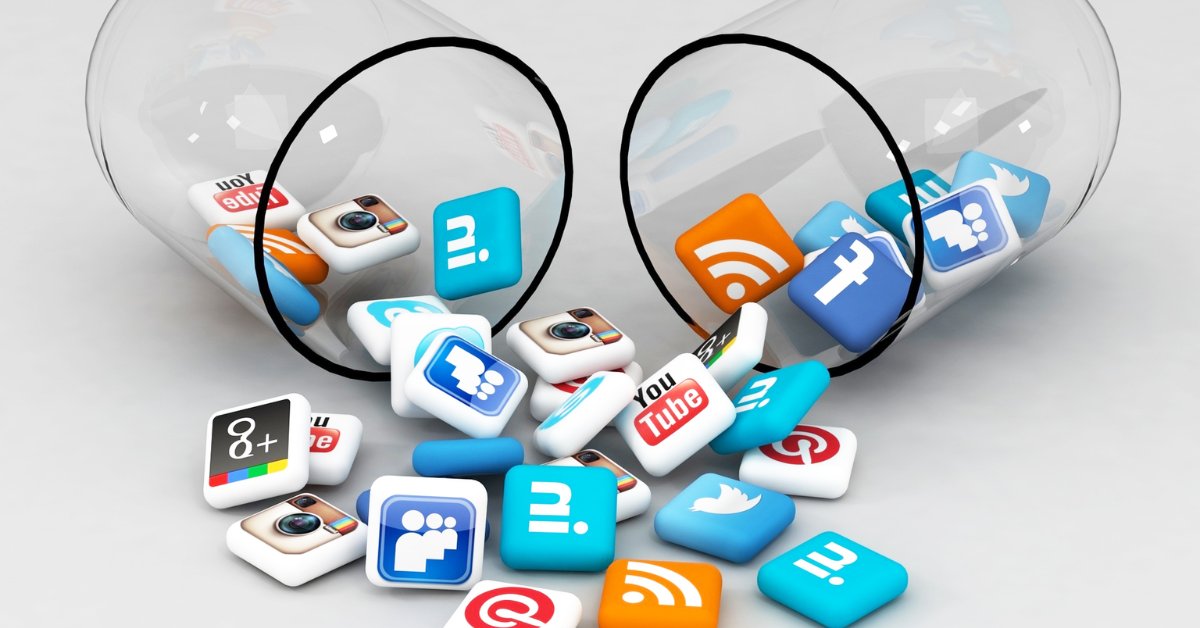In the digital age, we’re constantly bombarded with content from our social media feeds. But have you ever stopped to consider the social media app banality that’s quietly shaping our daily experiences? This phenomenon, often overlooked, has far-reaching consequences on our mental health, social interactions, and overall quality of life.
Let’s dive deep into the world of mundane posts, endless scrolling, and the subtle ways social media apps are transforming our everyday life.
What is social media app banality?
Social media banality refers to the flood of unremarkable, often repetitive content that dominates our digital feeds. It’s the endless stream of food photos, generic selfies, and uninspired status updates that we mindlessly scroll through. This banality isn’t just boring – it’s a powerful force shaping our online and offline experiences.
Imagine opening your favorite app and seeing your friend’s third coffee cup photo of the day. Or perhaps it’s another “inspirational” quote plastered over a sunset background. These posts, while seemingly harmless, contribute to a larger pattern of social media app banality that can dull our senses and skew our perceptions of reality.
What Is Social Media And Its Impact
Social media has revolutionized the way we connect, share information, and perceive the world around us. From the early days of MySpace to the current giants like Facebook, Instagram, and TikTok, these platforms have become an integral part of modern life. In the USA alone, over 70% of adults use some form of social media, with the average user spending about 2 hours and 24 minutes per day scrolling through their feeds.
The impact of social media extends far beyond mere communication. It’s reshaping industries, influencing political discourse, and even altering our brain chemistry. While social media has undoubtedly brought many benefits, such as instant global connectivity and democratized information sharing, it has also introduced new challenges. The banality on social media is one such challenge that we’re only beginning to understand.
The Impact Of Social Media Apps On Everyday Life
The social media app banality we encounter daily has a profound effect on how we perceive and interact with the world. It’s not just about wasted time; it’s about how these platforms are subtly altering our expectations, behaviors, and even our sense of self.
One of the most insidious effects of this banality is the way it normalizes a curated, often unrealistic version of life. When we’re constantly exposed to carefully filtered photos and highlight reels of others’ lives, it’s easy to fall into the trap of comparison. This can lead to feelings of inadequacy and a distorted view of what constitutes a “normal” or “successful” life.
The constant stream of banal content can desensitize us to more meaningful experiences. We might find ourselves less appreciative of real-world moments because they don’t measure up to the polished versions we see online. This tech craze for sharing every mundane detail of our lives can paradoxically make us less present in the moment.
The FOMO Effect and Social Comparison
Fear of Missing Out, or FOMO, is a psychological phenomenon exacerbated by social media banality. When we see a continuous stream of posts showing friends and acquaintances seemingly living their best lives, it can trigger anxiety and a sense that we’re somehow falling behind.
This constant social comparison can be particularly harmful because it’s often based on an incomplete or inaccurate picture. We’re comparing our behind-the-scenes to everyone else’s highlight reel, which is an unfair and ultimately futile exercise.
Impact of Social Media Apps on Mental Health
The relationship between social media apps and mental health is complex and multifaceted. While these platforms can provide valuable support networks and resources, the banality on social media can have significant negative impacts on our psychological well-being.
Research has shown correlations between heavy social media use and increased rates of anxiety, depression, and loneliness. The constant exposure to curated content can lead to feelings of inadequacy and low self-esteem. Moreover, the addictive nature of these apps, designed to keep us scrolling, can disrupt sleep patterns and contribute to attention problems.
It’s important to note that social media isn’t inherently bad for mental health. When used mindfully, these platforms can be powerful tools for connection, self-expression, and personal growth. The key lies in recognizing the potential pitfalls and learning to navigate the digital landscape in a way that prioritizes our well-being.
Comparison to Our lives with the Early Generation that does not Use Social Media Apps
To fully appreciate the impact of social media app banality, it’s enlightening to compare our current lifestyle with that of earlier generations who didn’t have access to these technologies.
Before the rise of social media, social interactions were primarily face-to-face or via phone calls. These interactions, while perhaps less frequent, were often more meaningful and present. People had to make a conscious effort to stay in touch, which could lead to deeper, more intentional relationships.
Privacy was also conceptualized differently. Without the constant pressure to share every moment online, people had more control over their personal information and how they presented themselves to the world. This lack of constant public scrutiny allowed for more authentic self-expression and personal growth.
However, it’s not all rose-tinted nostalgia. The pre-social media era had its own challenges, such as limited access to information and difficulties in maintaining long-distance relationships. The key is to recognize both the gains and losses that have come with our increased connectivity.
More Post
Pros and cons of Social Media Apps
Pros:
- Global Connectivity: Social media allows us to connect with people worldwide, breaking down geographical barriers.
- Information Access: These platforms provide instant access to news, educational content, and diverse perspectives.
- Community Building: Social media can foster communities around shared interests, providing support and belonging.
- Creative Expression: Many apps offer tools for creative content creation and sharing.
- Business Opportunities: Social media has opened up new avenues for marketing, networking, and entrepreneurship.
Cons:
- Time Sink: The banality of much social media content can lead to excessive, unproductive scrolling.
- Mental Health Impacts: Constant comparison and FOMO can contribute to anxiety and depression.
- Privacy Concerns: The amount of personal data shared on these platforms raises significant privacy issues.
- Misinformation: The rapid spread of false or misleading information is a growing concern.
- Decreased Face-to-Face Interaction: Overreliance on digital communication can lead to reduced in-person social skills.
The Future of Social Media Apps
As we grapple with the effects of social media app banality, it’s natural to wonder about the future of these platforms. Will they continue to dominate our lives, or will we see a shift towards more meaningful digital interactions?
One potential trend is the rise of niche social platforms focused on specific interests or demographics. These could provide more targeted, relevant content and foster deeper connections. We’re also likely to see increased integration of augmented and virtual reality, potentially creating more immersive and engaging social experiences.
| Trend | Description | Potential Impact |
| AI-Powered Personalization | Advanced algorithms will curate highly personalized content | May reduce banality but could create “filter bubbles” |
| Augmented Reality Integration | AR features will blend digital and physical worlds | Could make social interactions more immersive and engaging |
| Decentralized Platforms | Blockchain-based social networks may emerge | Increased user privacy and data ownership |
| Mental Health Focus | Apps will incorporate well-being features | May help mitigate negative psychological effects |
| Ephemeral Content Dominance | Temporary posts (like Stories) may become the norm | Could reduce pressure to create “perfect” content |
| Niche Community Platforms | Rise of highly specialized social networks | More meaningful connections around specific interests |
| Virtual Reality Social Spaces | VR-based social environments | New forms of digital interaction and presence |
| Voice and Gesture Control | New input methods for easier interaction | Could make social media more accessible and natural to use |
| Real-Time Translation | Seamless communication across language barriers | Global connections become easier to form and maintain |
| Content Authenticity Measures | Tools to verify the source and authenticity of posts | Combat misinformation and deep fakes |
Conclusion
The social media app banality that permeates our digital lives is more than just a minor annoyance – it’s a powerful force shaping our perceptions, behaviors, and mental health. While social media has brought unprecedented connectivity and opportunities, it’s crucial to be aware of its potential downsides.
By understanding the impact of this banality, we can take steps to create a healthier relationship with social media. This might involve being more selective about what we consume and share, setting boundaries on our usage, and making a conscious effort to engage in meaningful, real-world interactions.
Ultimately, the goal isn’t to demonize social media, but to harness its potential while mitigating its negative effects. By doing so, we can enjoy the benefits of digital connectivity without sacrificing our well-being or the richness of our offline experiences.
FAQ’S
How can I reduce the impact of social media app banality on my life?
Consider curating your feed more carefully, setting time limits for app usage, and making a conscious effort to engage in offline activities.
Are certain age groups more affected by social media app banality?
While all age groups can be affected, research suggests that teenagers and young adults may be particularly vulnerable to the negative impacts of social media.
Can social media app banality have positive effects?
In some cases, the banality of social media can serve as a wake-up call, prompting users to seek more meaningful interactions and experiences both online and offline.
How do social media algorithms contribute to the spread of banal content?
Algorithms often prioritize content that generates high engagement, which can sometimes lead to the promotion of sensational or banal posts over more substantive content.
What steps are social media companies taking to address app banality?
Some companies are experimenting with features like time management tools and more control over feed content. However, addressing banality while maintaining user engagement remains a challenge for many platforms.












